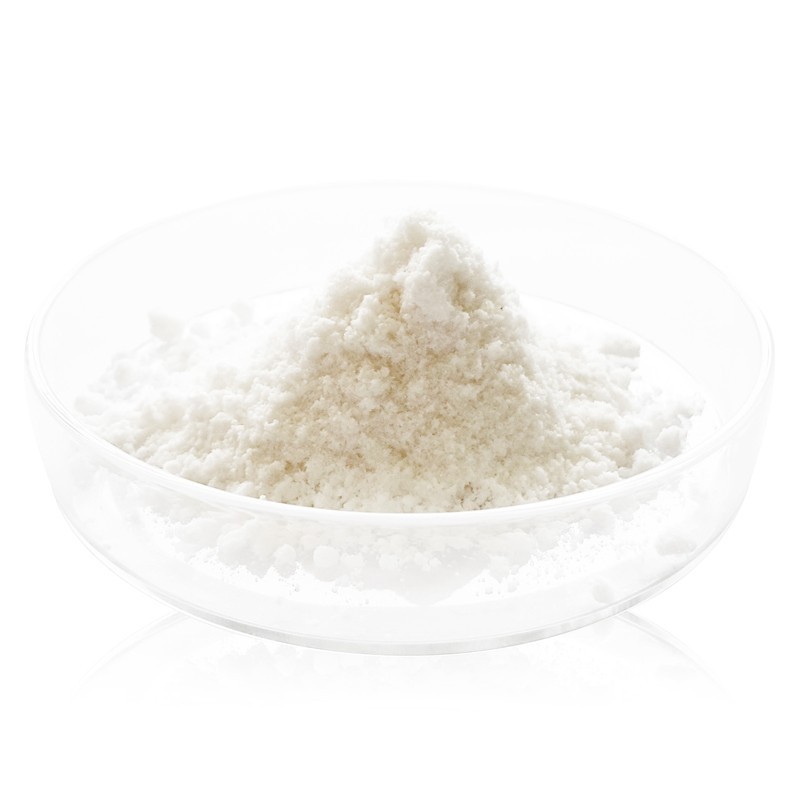
Intestinal parasites such as roundworms, hookworms, whipworms, and tapeworms can cause a range of health issues and discomfort for both dogs and cats. Fortunately, anthelmintics like mebendazole (the active ingredient in Vermox) provide an effective solution to combat these pesky parasites. Consult your veterinarian to determine if Vermox or another dewormer is the right choice for your pet’s needs.
Anthelmintics, also known as dewormers, are medications specifically designed to target and eliminate various types of intestinal worms in dogs. They come in different forms, including oral tablets, chewables, liquids, and topical treatments, offering flexibility and convenience for pet owners.
The primary goal of anthelmintic treatment is to prevent and control worm infestations. Regular use of dewormers helps to break the lifecycle of parasites, interrupting their reproduction and reducing the risk of transmission. By effectively eliminating worms, anthelmintics contribute to the overall health and longevity of our canine companions.
Different types of anthelmintics target specific worm species, while others provide broad-spectrum protection against multiple types of parasites. Broad-spectrum dewormers are commonly used as they offer comprehensive coverage against the most common intestinal worms found in dogs.
Anthelmintics work by interfering with the worm’s nervous system or metabolic processes, ultimately leading to their paralysis or death. Once the worms are affected, they are expelled from the dog’s body through feces. It’s important to note that some dewormers require multiple doses to ensure complete eradication of worms.
 To ensure effective parasite prevention, it is crucial to follow a deworming schedule recommended by a veterinarian. The frequency of deworming depends on various factors, including the dog’s age, lifestyle, and risk of exposure to parasites. Puppies often require more frequent deworming, as they are more susceptible to worm infestations.
To ensure effective parasite prevention, it is crucial to follow a deworming schedule recommended by a veterinarian. The frequency of deworming depends on various factors, including the dog’s age, lifestyle, and risk of exposure to parasites. Puppies often require more frequent deworming, as they are more susceptible to worm infestations.
Administering anthelmintics to dogs is relatively straightforward, but it’s important to follow the dosage instructions provided by the manufacturer or veterinarian. Oral dewormers can be given directly or mixed with food, while topical treatments are applied to the skin. It’s essential to weigh the dog accurately and use the appropriate dosage to ensure effective treatment.
In addition to using anthelmintics, maintaining good hygiene practices is essential in preventing reinfestation. Regularly cleaning up feces in the dog’s living area and keeping their bedding clean helps minimize the risk of exposure to parasites. It’s also important to wash hands thoroughly after handling dogs, especially before eating or preparing food.
Anthelmintics play a vital role in protecting our canine companions from the harmful effects of intestinal parasites. By following a deworming schedule, using the appropriate type of dewormer, and practicing good hygiene, dog owners can help ensure their furry friends remain healthy, happy, and free from the risks associated with worm infestations. Always consult with a veterinarian for personalized advice on deworming protocols and choosing the right anthelmintic for your dog’s specific needs.
Understanding and Safeguarding Your Dog’s Health: A Comprehensive Guide to Anthelmintics and Parasite Prevention
Intestinal parasites pose a significant threat to the health and well-being of our furry companions. Dogs are susceptible to various types of intestinal worms, which can lead to severe health issues if left untreated. Thankfully, anthelmintics, commonly known as dewormers, play a crucial role in keeping dogs healthy and free from harmful parasites. In this comprehensive guide, we will delve into the significance of anthelmintics, different types of dewormers available, their modes of action, and essential guidelines for effective parasite prevention.
Understanding Intestinal Parasites in Dogs
1.1 Common types of intestinal worms affecting dogs: Dogs can be affected by several types of intestinal worms, including roundworms, hookworms, whipworms, and tapeworms. Each of these parasites presents its own set of challenges and health risks.
1.2 Health risks associated with untreated worm infestations: Worm infestations can have serious consequences for your dog’s health. Common health risks include weight loss, nutritional deficiencies, diarrhea, vomiting, anemia, and even organ damage. Furthermore, certain types of worms, such as roundworms and hookworms, can be transmitted to humans, posing a risk to public health.
The Importance of Anthelmintics for Dogs
2.1 Prevention vs. treatment: Why regular deworming is essential: Regular deworming is crucial for preventing and controlling worm infestations in dogs. By administering anthelmintics on a scheduled basis, you can break the parasite lifecycle, minimize the risk of transmission, and prevent the associated health problems.
2.2 Benefits of using anthelmintics for dogs: Anthelmintics offer numerous benefits for dogs. They effectively eliminate parasites, reduce the risk of reinfection, alleviate symptoms associated with worm infestations, improve digestion and nutrient absorption, and enhance overall canine health and well-being.
2.3 Impact on overall canine health and well-being: A proactive approach to deworming through the use of anthelmintics contributes significantly to a dog’s overall health. By preventing or treating worm infestations, you can help your canine companion maintain a healthy weight, strong immunity, and optimal organ function.
Types of Anthelmintics for Dogs
3.1 Broad-spectrum anthelmintics: Targeting multiple worm species: Broad-spectrum dewormers are widely used because they provide comprehensive protection against various types of intestinal worms. They are effective against common worms found in dogs and simplify the deworming process by targeting multiple worm species simultaneously.
3.2 Specific anthelmintics: Tailored treatments for specific worms: Some anthelmintics are designed to specifically target and treat particular worm species. These specific anthelmintics may be recommended in cases where a particular worm is identified or suspected, allowing for targeted treatment and increased efficacy.
3.3 Oral, topical, and injectable anthelmintic options: Anthelmintics are available in different forms to suit the preferences and needs of dog owners. Oral tablets, chewables, liquids, topical treatments, and injectables offer convenience and flexibility in administration.
Modes of Action
 4.1 How anthelmintics work to eliminate intestinal parasites: Anthelmintics employ various mechanisms to combat intestinal parasites. They can paralyze the worms, interfere with their metabolic processes, or disrupt their ability to absorb nutrients, ultimately leading to their expulsion from the dog’s body.
4.1 How anthelmintics work to eliminate intestinal parasites: Anthelmintics employ various mechanisms to combat intestinal parasites. They can paralyze the worms, interfere with their metabolic processes, or disrupt their ability to absorb nutrients, ultimately leading to their expulsion from the dog’s body.
4.2 Understanding the life cycles of common canine worms: A thorough understanding of the life cycles of common canine worms is essential for effective deworming. Different worms have distinct life stages, and anthelmintics should be administered at specific times to target the vulnerable stages of the parasites.
4.3 Timing and effectiveness of anthelmintic treatments: The timing of anthelmintic treatments is critical for their effectiveness. Properly timed deworming helps ensure maximum efficacy by targeting worms at the most susceptible stages of their life cycles.
Administering Anthelmintics to Dogs
5.1 Recommended dosage guidelines: It is crucial to administer the correct dosage of anthelmintics to dogs. Dosage guidelines provided by the manufacturer or your veterinarian should be followed carefully to ensure effective treatment without causing harm to your pet.
5.2 Tips for giving oral dewormers to dogs: Administering oral dewormers can sometimes be challenging. However, by following a few simple tips, such as disguising the medication in treats or using pill dispensers, you can make the process easier and more successful.
5.3 Safety precautions and potential side effects: While anthelmintics are generally safe when used as directed, it is important to be aware of potential side effects. Common side effects may include mild gastrointestinal upset or allergic reactions. If you notice any unusual symptoms, consult your veterinarian promptly.
Developing an Effective Deworming Schedule
6.1 Guidelines for puppies, adult dogs, and senior dogs: Different life stages of dogs require specific deworming protocols. Puppies, due to their increased susceptibility, generally require more frequent deworming. Adult dogs and senior dogs also benefit from regular deworming to maintain their health.
6.2 Frequency of deworming based on risk factors and lifestyle: The frequency of deworming depends on various factors, such as the dog’s lifestyle, exposure to potential sources of infection, and geographic location. Working closely with your veterinarian will help determine an appropriate deworming schedule tailored to your dog’s specific needs.
6.3 Coordinating with your veterinarian for personalized recommendations: Your veterinarian is your best resource for personalized advice on deworming protocols and the selection of anthelmintics. They can assess your dog’s health, perform fecal examinations, and recommend the most suitable deworming schedule for your furry friend.
Integrated Approach to Parasite Prevention
7.1 Good hygiene practices for dogs and their living environment: Practicing good hygiene is essential in preventing worm infestations. Regularly cleaning up your dog’s waste, keeping their living areas clean, and practicing proper hand hygiene are vital steps in reducing the risk of transmission.
7.2 Regular fecal examinations and veterinarian check-ups: Regular fecal examinations help identify worm infestations, even in the absence of visible symptoms. Combined with routine veterinarian check-ups, they form a crucial part of comprehensive parasite prevention.
7.3 Education on zoonotic risks and the importance of deworming: Educating yourself and others about zoonotic risks associated with worms and the importance of deworming can help protect not only your dog but also your family and the wider community. Awareness of the potential health risks motivates responsible pet ownership and proactive parasite prevention.

In conclusion, understanding the significance of anthelmintics and implementing a comprehensive parasite prevention plan is essential for the health and well-being of your dog. By recognizing the common types of intestinal worms, administering appropriate anthelmintics, following recommended dosage guidelines, and practicing good hygiene, you can protect your furry friend from the risks associated with worm infestations. Remember, consult your veterinarian for personalized advice and recommendations to ensure the optimal health of your canine companion.



